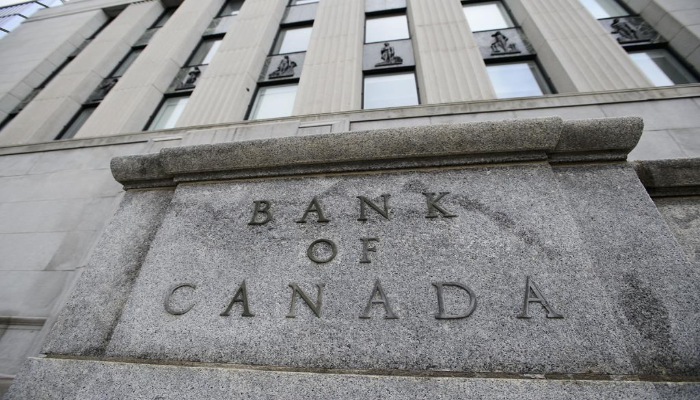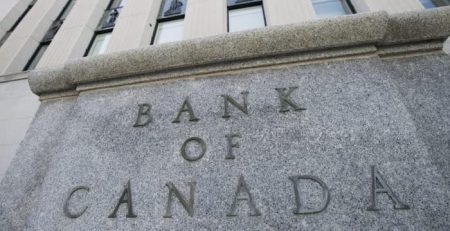Bank of Canada keeps key interest rate unchanged, says COVID-19 economic recovery likely by 2022
[News 1130 – October 28, 2020]
OTTAWA – The Bank of Canada kept its key interest rate on hold Wednesday as it said the country’s economy won’t fully recover what was lost to COVID-19 until 2022, with the road to there dependent on the path of the pandemic.
The central bank held its overnight rate target at 0.25 per cent.
In July, the Bank of Canada said it believed the country had been spared from a worst-case scenario.
The bank’s updated outlook in Wednesday’s monetary policy report said the rebound over the summer was stronger than expected as the country reversed about two-thirds of the decline seen in the first half of the year.
Officials estimate the economy will shrink by 5.7 per cent this year, but grow by 4.2 per cent next year, and 3.7 per cent in 2022.
The report also says the country’s headline inflation barometer, Statistics Canada’s consumer price index, will stay below the bank’s two per cent target through 2022.
The report forecasts annual inflation at 0.6 per cent this year, 1.0 per cent next year, and 1.7 per cent in 2022.
Governor Tiff Macklem has said the bank will keep its key policy rate as low at it can go at 0.25 per cent until the economy has recovered and inflation is back on target.
Underpinning the bank’s outlook are two major assumptions: That widespread lockdowns won’t be utilized again, and that a vaccine or effective treatment will be widely available by mid-2022.
The country has recouped about two-thirds of the three million jobs lost in March and April. Emergency federal aid has replaced lost wages for millions of workers, and provided loans and wage subsidies to struggling businesses.
The recuperation from the drop earlier this year has been uneven, the report notes. The hardest hit sectors, such as restaurants, travel and accommodations, continue to lag.
Workers in those sectors, as well and youth and low-wage workers, continue to face high levels of unemployment, the report says.
All may be hit hard again by any new rounds of restrictions, the report notes. Some areas of the country have already imposed such public health restrictions in the face of rising COVID-19 case counts.
“The breadth and intensity of re-imposed containment measures, including impacts on schools and the availability of child care, could lead to setbacks,” the report says.
“Long breaks in employment have the potential for longer-term impacts on the income prospects of vulnerable groups.”
The report says that government aid has played a key role in providing a financial lifeline to individuals and businesses, which will have its strongest economic impacts this year and early next.
Changes to employment insurance and new benefit programs will increase households’ disposable income, officials write, adding that the bank expects government aid to “provide important support to the economy throughout the recovery.











